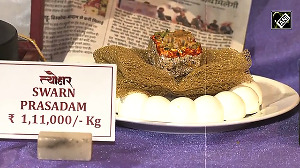The ban was approved by delegates at the concluding session of USATF'S annual meeting, however, it will only come into effect if approved by the International Association of Athletics Federations (IAAF) and found to be in compliance with the U.S Amateur Sport Act.
But WADA chairman Richard Pound labelled the ban "some kind of grandstand play".
"(USATF chief executive) Craig Masback is a very good lawyer and he knows perfectly well that's unenforceable," Pound told Reuters in a telephone interview from his Montreal home.
"If you enact legislation rule that you know are going to fail, that run counter to your international federation, that you know that the courts in your country and every other country in the world will not enforce, you are setting yourself up for failure," said Pound, an outspoken critic of USATF and its handling of previous doping cases.
"This is a federation that on the one hand is saying steroids are so bad you should be banned for life, but they are quiet happy for Jerome Young to be running around with an Olympic medal around his neck."
TESTED POSITIVE
World 400 metres champion, Young tested positive in 1999 for the steroid nandrolone but was cleared by a USATF review panel and went on to win Olympic gold as part of the 4x400 relay squad.
His case is being reviewed by the International Olympic Committee (IOC). Under IAAF rules athletes face a two-year ban for a first-time steroid offence.
The U.S. Amateur Sports Act prohibits a governing body from having harsher eligibility criteria than those applied by international sports federations.
But Masback said he did not believe the provision applied to doping issues and that USATF would work with the U.S. Olympic Committee (USOC) and Congress to clear up the issue.
He also said USATF would like the IAAF to clarify its rule for first-time steroid offences -- which calls for a minimum two-year ban -- to read a minimum of two years up to a maximum of life.
USOC spokesman Darryl Seibel said they would want to take a closer look at what was enacted by USATF before commenting on whether the ban complied with the U.S. Amateur Sports Act.
ANTI-DOPING INCONSISTENCIES
"We do think it is very important that whatever USA Track & Field intends to implement, that it comply not only with provisions of the Amateur Sports Act, but also of the world anti-doping code, the policy of the United States Anti-Doping Agency and certainly the policies of their international federation," Seibel said in a telephone interview from Colorado Springs, Colorado.
"One of the problems the entire anti-doping effort has had over the last 15-20 years has been inconsistencies from one sport to the next, from one country to the next with respect to (doping) procedures, adjudication and penalties."
USATF's Law & Legislation Committee had concerns about the ban being in compliance with the U.S. Amateur Sports Act and it shelved the proposal, a key part of USATF's new Zero Tolerance program, on Saturday because of legal issues.
The ban was resurrected on Sunday by the general session after an amendment was added calling for a lifetime suspension only if it did not violate any provision of the U.S. Amateur Sports Act.
"(The ban) would go into effect tomorrow, if the IAAF gives us permission, USATF president Bill Roe said.







